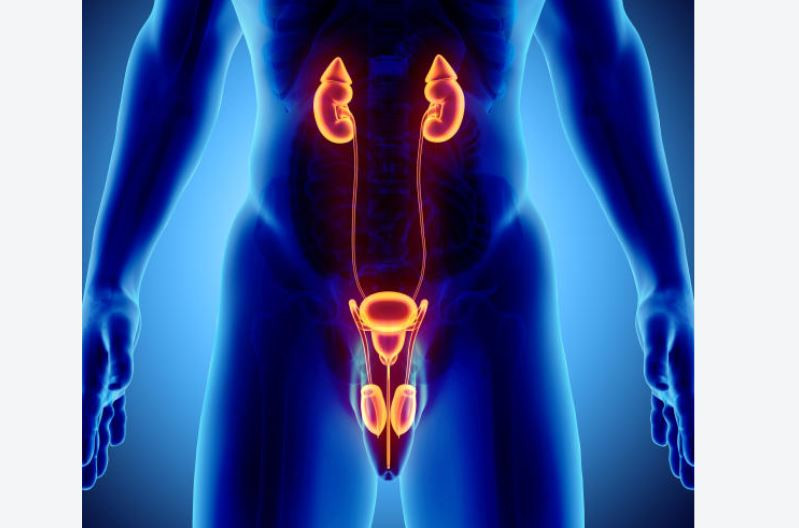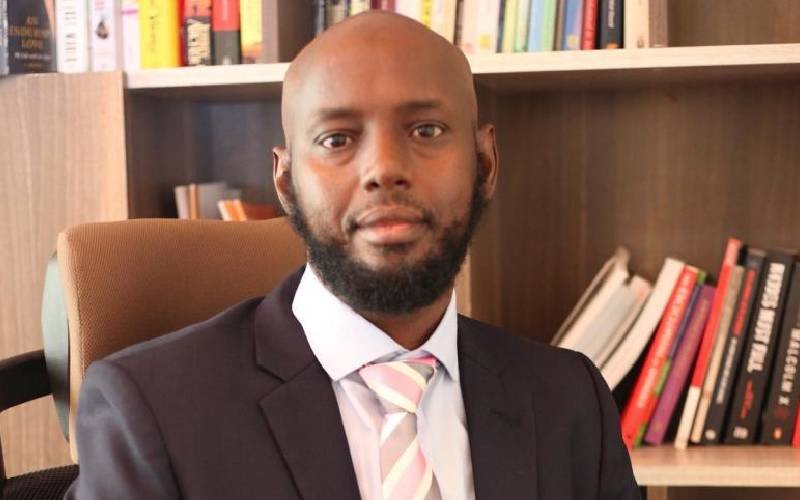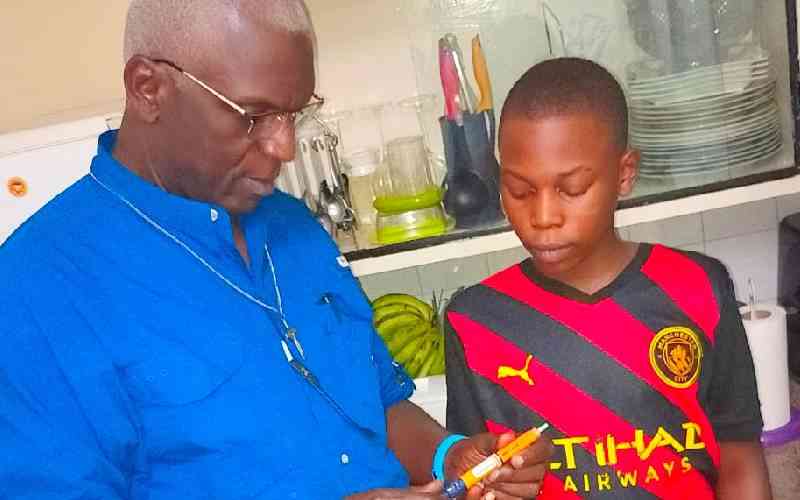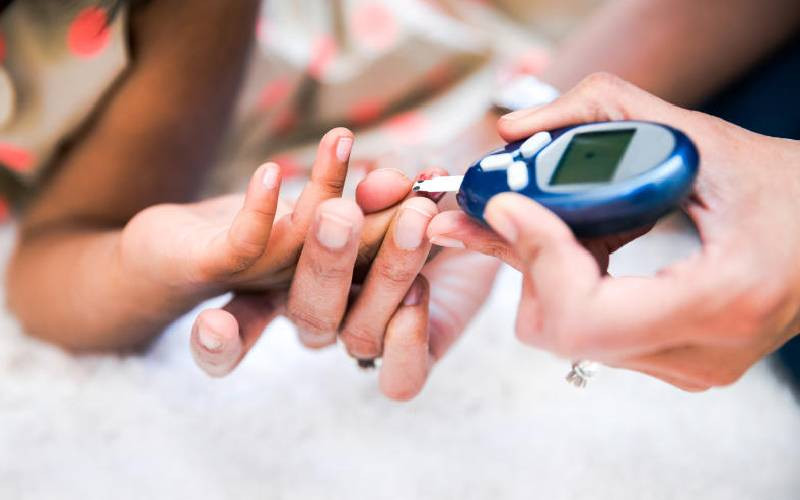
Imagine being put under anaesthesia 16 times, each time with the hope of getting better—only to wake up to disappointment and find yourself in the same condition.
Being cut open or stitched up with promises of relief, only for the pain, swelling, and urinary retention to return after each procedure.
Passing urine—a simple act many take for granted—becomes a daily ordeal. The anxiety before each bathroom visit, the shame and stigma that creep in uninvited, and the exhaustion of being treated like a medical anomaly rather than a young man whose life is on hold.
This has been the reality for Collins Kipng’etich, a 24-year-old from Kericho County, whose eyes carry the weight of someone who has spent a lifetime battling severe pain.
When urine flow is obstructed—either partially or completely—urologists say it could be due to a blockage in the urethra, the tube that connects the bladder to the outside of the body. Such obstructions can become a serious medical concern.
Kipng’etich was diagnosed at birth with penoscrotal hypospadias, a condition where the urethral opening is not located at the tip of the penis but rather on the underside, sometimes as far down as the scrotum. It is a congenital birth defect, and according to urologists, it is relatively common in male infants.
“I was diagnosed with penoscrotal hypospadias at birth because I couldn’t urinate properly. I was urinating from the side, close to the scrotum, and I had a deformity in my manhood. So, I had my first surgery at one year old— a reconstruction called urethroplasty—hoping the condition would be corrected early. But 24 years later, I’m still battling it,” recounts Kipng’etich.
Between the ages of one and 2014, he underwent seven reconstructive surgeries. For a time, the urethra was functional, and he was able to urinate normally—until complications resurfaced in 2016.
- Tired of rushing to the loo? Here's how to manage frequent urination
- Caring through chaos: Families endure dementia's slow, unrelenting grip
- Understanding possibility of remission in diabetes
Keep Reading
“I couldn’t urinate again because of obstruction. Scar tissue was forming every time there was a cut in the urethra,” he explains.
Rather than improving, each surgery brought new complications. He began suffering from repeated urinary tract infections (UTIs), and the medications caused more pain and difficulty passing urine.
“You can imagine—since birth, I’ve undergone 19 surgeries. Not a single one has fully resolved the issue. I’m now preparing for my 20th, hoping this time it will be different, so I can finally feel like other men my age.”
For Kipng’etich, this is not just a physical struggle, but a psychological prison that has stripped away his dignity and confidence.
“I feel like I’ve lost a huge part of my life—my self-esteem. People ask me why I’m going through this, and you know it’s a sensitive matter. I still have two more surgeries to go; they’ll be done in stages.”
At one point, his penis became completely blocked, and another surgery was performed to open the urethra. It helped—but only temporarily.
“In June 2019, I was still struggling. I began feeling unwell, and when I returned to hospital, a scan revealed another obstruction. I had to undergo yet another surgery to reopen the urethra.”
According to Dr Amadadin Alhlib, a urologist at the Aga Khan University Hospital, urethral strictures are common among patients who have undergone hypospadias repair—especially complex cases. Scar tissue often forms as a result, narrowing the urethra.
“Urethral stricture is the second most common cause of urinary obstruction after an enlarged prostate. It can be congenital or acquired—often resulting from infection, sexually transmitted diseases, or trauma,” explains Dr Alhlib.
He recommends that patients like Kipng’etich, who have undergone multiple failed surgeries, be treated at a specialist centre.
“There are centres dedicated to complex hypospadias and stricture repair. It’s crucial for patients to go directly to such facilities, as they have the expertise to handle challenging cases.”
Dr Alhlib notes that early signs of hypospadias include a deviated urine stream and difficulty urinating while standing, especially in infants. If left untreated, the condition can lead to further complications, including difficulty during sexual intercourse due to underdeveloped foreskin.
Hypospadias can also cause frequent urination, increased daytime urgency, or waking up multiple times at night to urinate.
“The most common causes include infections, sexually transmitted diseases such as gonorrhoea, or trauma—whether general, social, or medical,” says Alhlib.
He stresses that surgical repair is the definitive treatment for hypospadias, ideally performed between six and 12 months of age, when healing is easier and anaesthesia is safer.
During the procedure, a paediatric urologist typically starts by straightening any curvature of the penis. This is done by incising around the mislocated urethral opening, freeing underlying tissue to release tethering bands.
The surgeon must then reconstruct the urethra to relocate the meatus (urethral opening) to the tip of the penis. This is often done using skin flaps from the foreskin or grafts from the lips or behind the ears.
“Distal hypospadias—where the urethral opening is closer to the head of the penis—can usually be corrected in one operation. Proximal cases, where the opening is at or near the scrotum, may require a two-stage procedure depending on the extent of reconstruction needed,” explains Alhlib.
The longer the urethra that must be reconstructed, the higher the risk of complications such as fistulas—leakages along the surgical site.
Despite everything he has endured, Kipng’etich remains hopeful.
“I just want to be healthy. I want to be free of pain. I want to live a normal life, like other men.”
 The Standard Group Plc is a multi-media organization with investments in media
platforms spanning newspaper print
operations, television, radio broadcasting, digital and online services. The
Standard Group is recognized as a
leading multi-media house in Kenya with a key influence in matters of national
and international interest.
The Standard Group Plc is a multi-media organization with investments in media
platforms spanning newspaper print
operations, television, radio broadcasting, digital and online services. The
Standard Group is recognized as a
leading multi-media house in Kenya with a key influence in matters of national
and international interest.











